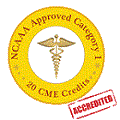
Demirbag Suzi
Gulhane Military Medical Academy, Turkey
Title: Postoperative intra-abdominal adhesions
Biography
Biography: Demirbag Suzi
Abstract
Post-operative intra-abdominal adhesions are still one of the most challenging problems of modern surgery and cause chronic pelvic pain, infertility, mechanical bowel obstruction and prolonged reoperation time and increased intraoperative/ postoperative complications. Preventive measures such as avoiding unnecessary trauma to tissues, keeping any foreign body out of the peritoneal cavity, keeping serosal surfaces moisturized, preventing contamination of the peritoneum by intestinal contents and avoiding the application of any kind of irritant solution arequite important to prevent adhesion formation. Despite several precautions, creative efforts and anti-adhesive products, peritoneal adhesions aft er laparotomy have been reported as high as in over 90% of the patients. Peritoneal injury, ischemia and peritoneal infl ammation are the most important causes of postoperative adhesions. Although many methods have been used for the prevention of adhesion formation, no completely satisfactory solution is currently available. Research in adhesion prevention has essentially focused on: (1) mechanical barriers (2) protective polymer solutions and (3) anti-inflammatory and fi brinolytic agents. Barriers used for the prevention of postoperative adhesion formation include both mechanical barriers and viscous solutions. In this presentation we will discuss the postoperative intra abdominal adhesiogenesis and researches in adhesion prevention.

